Known by his colleagues as the "singing Dean," Professor Federico Freschi is a well-known name in academic, classical music, and contemporary art circles. His career trajectory is illustrious, yet his wide-ranging interests and outputs are what make him such a distinctive figure in Joburg.
Freschi's career in academia began with a fine arts degree and led him to a PhD in art history at the University of the Witwatersrand (Wits). He went on to teach art history at prominent universities including Wits and the University of Cape Town (UCT). Not without a few tangents – for a time, Freschi served as senior curator at Goodman Gallery in Cape Town – he later accepted a role as Executive Dean of the Faculty of Art, Design and Architecture (FADA) at the University of Johannesburg (UJ). After spending four years living and working in New Zealand, Freschi's homecoming in 2023 saw him step back into his previous position at FADA.
As is becoming clear, Freschi's title far exceeds that of "academic". With a degree in opera from UCT, he's also an accomplished baritone who's had considerable success as a concert soloist and opera singer. Jokingly, he claims that he's "Dean by day, and star of stage and screen by night." Freschi sees no clear separation between art and academia, saying "these two strands have always been intertwined in my life." Apart from his musical pursuits, curatorship is another of the ways he bridges this gap. Notably, Freschi curated the landmark Henri Matisse solo, Rhythm and Meaning, at Standard Bank Gallery in 2016. Nowadays, much of his academic research is focused on the character of modern art in South Africa.
Since returning to UJ, Freschi has reinstated an important tradition – the much anticipated annual Dean's Concert which acts as a vital fundraising gala for deserving FADA students. The 2024 edition, taking place on Sat, Nov 2 at the UJ Arts Centre, features the award-winning UJ Choir and a stellar line-up of special guests, while Freschi also performs on the night. Book your tickets here.
Ahead of the performance, we spoke to Freschi about his background, the role of the arts in society, and why Joburg will always be home.
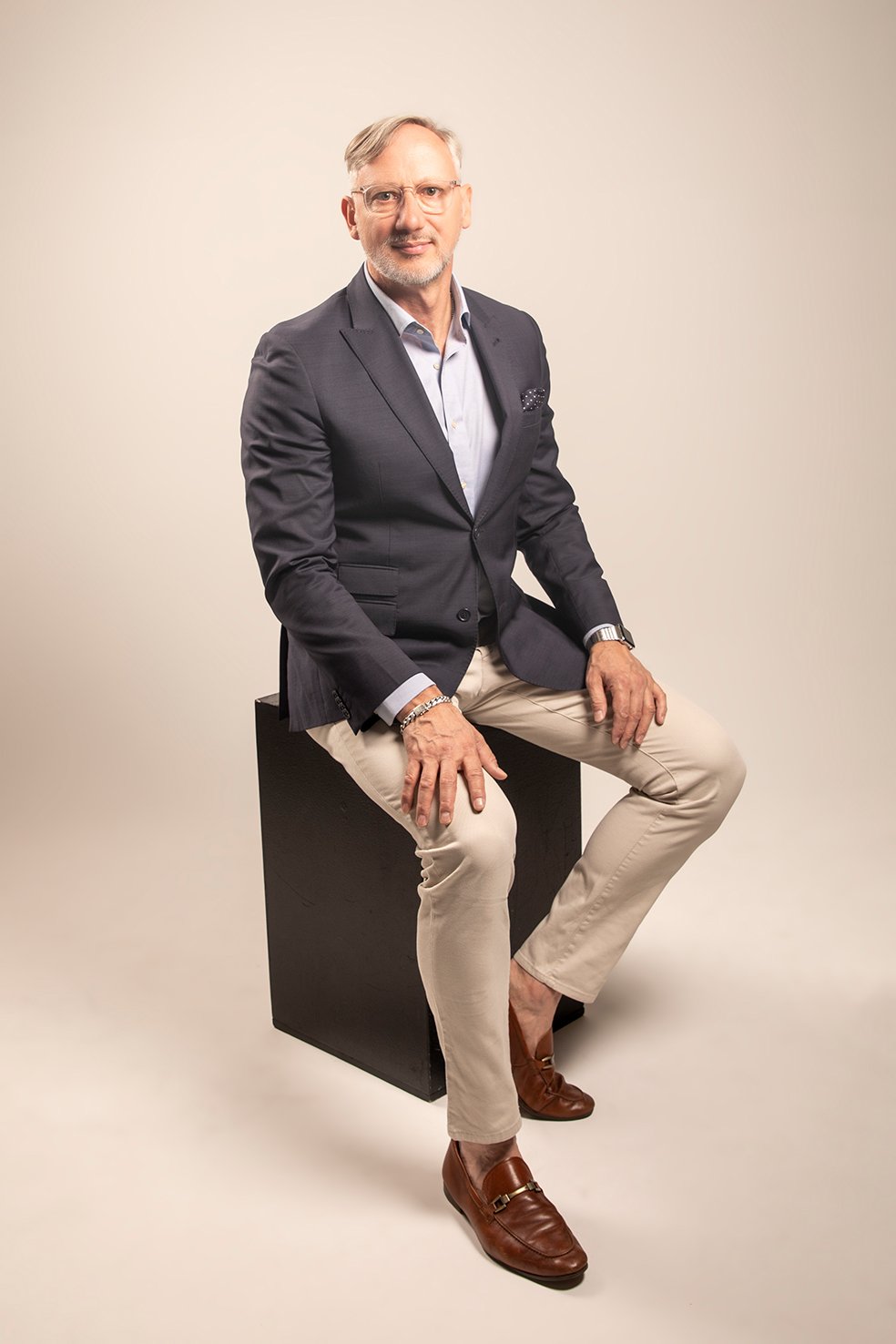
"Sometimes my attraction to Johannesburg feels a bit like a relationship with a difficult partner – you know you should probably get out, but when the going's good they are so glamorous, so sexy, so generous that you keep returning..."
The annual Dean's Concert returns to UJ after a four-year hiatus. What's made this possible?
I started the concerts during my previous tenure as Executive Dean, I think the first one was in 2014. Initially, it was a concert in which I performed with my dear friend, the celebrated concert pianist Christopher Duigan, whom I've known since we were both students at UCT College of Music in the early 1990s, and with whom I've collaborated extensively over the years. It was a way of introducing the University of Johannesburg community to my 'other' life as a performing artist, and to leverage this as a fundraising opportunity.
My wonderfully entrepreneurial colleagues at UJ Arts & Culture soon realised that there was scope to expand this into a bigger event, and the concept of an annual gala concert was born, with Christopher and me as the anchors and a changing roster of invited young artists. The concert went from strength to strength and became a much-anticipated fixture on the already very full UJ calendar.
I left UJ at the end of 2019 to move to New Zealand, and the Covid pandemic happened early in 2020... the concert fell off the annual calendar. So, the short answer to your question is that my return to UJ has made it possible, both because I am the "singing Dean" and because UJ has been so fantastically receptive to the idea of an event like this as a gala fundraiser.
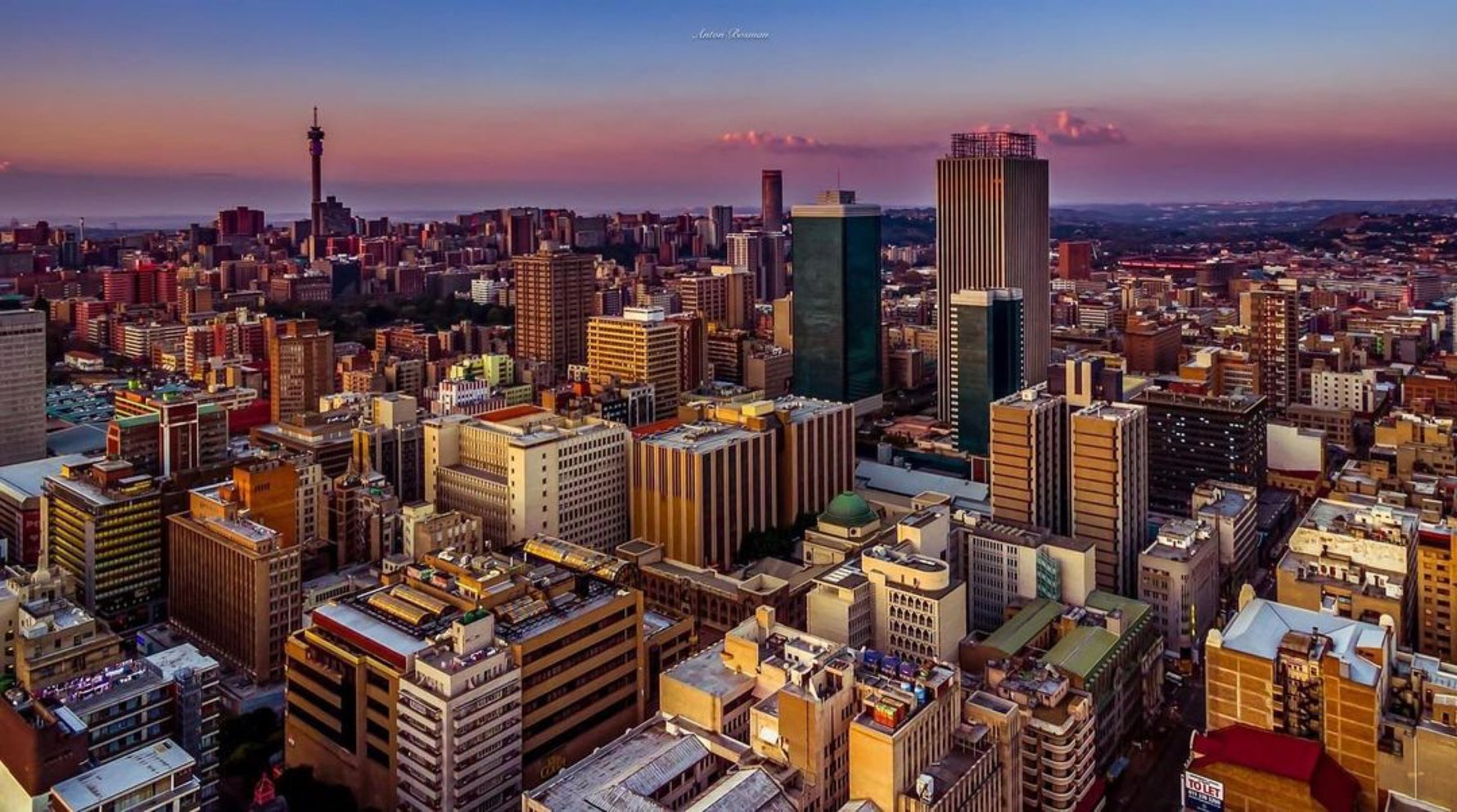
The event supports the Dean's Bursary Fund, which goes to deserving Faculty of Art, Design and Architecture (FADA) students who need financial support. Tell us why it's so critical.
Our students undergo rigorous assessment to ensure that they have the right combination of talent and resilience that will enable them not just to cope, but to flourish in the challenging and constantly changing worlds of the creative industries. Consequently, our students are driven by a real passion for what they do, and it is heartbreaking when good, talented students are unable to develop their full potential because they cannot afford their studies.
Given the ever-increasing cost of living, the financial constraints that we're all experiencing, and the fact that many of our students are the first in their families to attend university and come from modest backgrounds, the financial pressures are real. This is particularly true for the so-called 'missing middle' students – those who do not meet the means test criteria for the national student aid funding, but who can nonetheless barely afford the cost of tertiary education.
Sometimes a relatively small amount of money can make the massive difference between a student being able to continue and having to drop out. A fund like this means that I can support students who are in good academic standing on an ad hoc basis to help them out of a tight spot that might make the difference between them continuing their studies and dropping out.
"The work that creatives do is invisibly and irrevocably embedded in every aspect of our lives. Investing in the arts is investing in the future of our common humanity."
A Grand Night for Singing is one way. How else can people support the Dean's Bursary Fund?
They can donate directly (contact Lakin Morgan-Baatjies at lakinmb@uj.ac.za for details), secure in the knowledge that all the money will go towards supporting students. Or they can invite me to come and talk, lecture, sing (or all of the above) in exchange for a fee that will be donated to the fund. The concert will also feature a silent auction of artworks donated by artists including William Kentridge, Balekane Legate, Farieda Nazier, Gordon Froud, and Dr. Foodz Halal. All proceeds from the auction will also go directly to the fund.
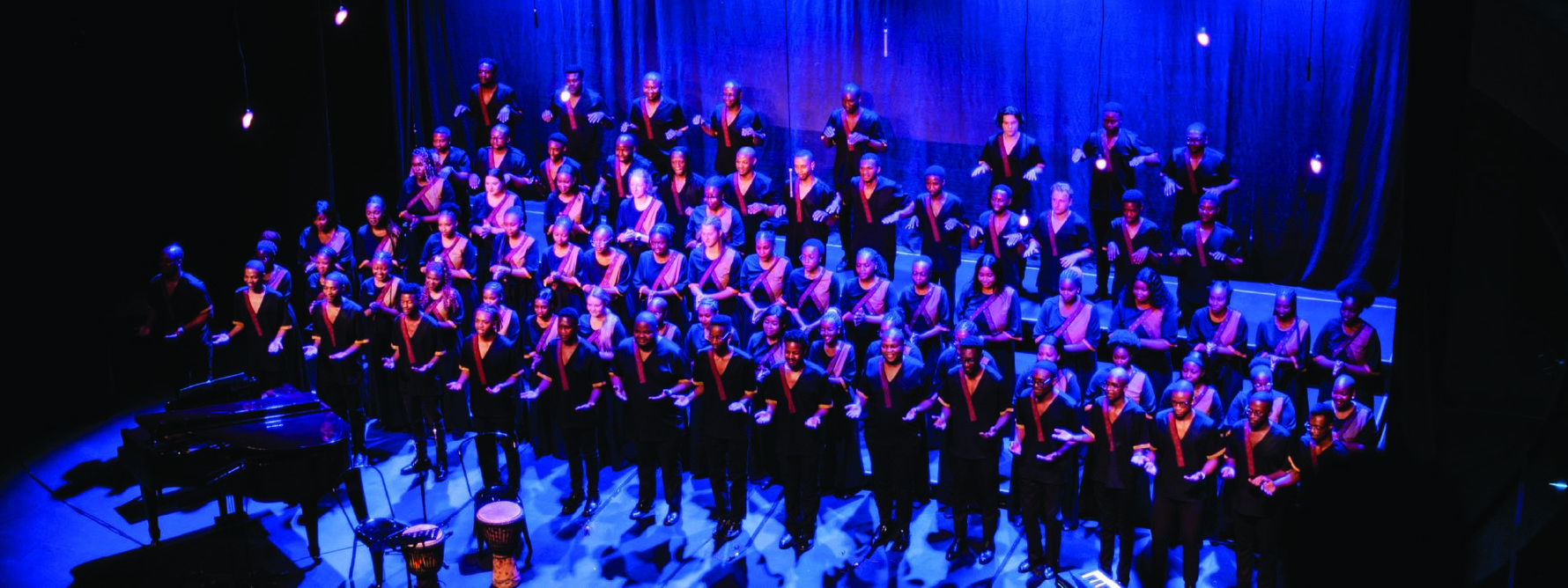
What makes the creative fields of study nurtured by FADA uniquely positioned to shape South Africa's future for the better?
The creative disciplines that we teach touch every aspect of our lives, from the buildings we live and work in, the clothes and jewellery we wear, the furniture we live with and appliances we use, the entertainment we enjoy, the apps we rely on to... well, everything, the communications that make sense of our world, the art that challenges and nourishes us. In fact, when you think about it in this way, the work that creatives do is invisibly and irrevocably embedded in every aspect of our lives. Our students are challenged constantly to engage with the challenges and opportunities that this presents and to do so in ways that are culturally, socially, and environmentally sustainable and future-focused. Also, our students and graduates are amazing in their passion, creativity, optimism, willingness to challenge received wisdom, and their belief in the power of the arts to change the world. Investing in the arts is investing in the future of our common humanity.
What are your reflections on South African contemporary art, design, and architecture today?
The thing that I missed the most when I was in New Zealand was the energy, dynamism, and fearlessness of South African creatives. Their willingness to push boundaries, not to shy away from difficult issues, to embrace paradoxes, to revel in complexity and contradiction, and to embrace their authentic selves.
"I was so happy to return to the vibrancy, creativity, and energy of this extraordinary place. It's not the first time I've left Joburg and come back, but I have a sense it will be the last!"
You left South Africa for a post in New Zealand. Tell us about your time there, and what drew you back to Joburg?
I was offered the position of Head of College of Art, Design and Architecture at the Otago Polytechnic in Dunedin. I was ready for a new challenge and it seemed the right time of my life to take advantage of a new opportunity. My time there was challenging – not only because of the Covid lockdowns, which happened six months after arriving – but also, frustratingly, because the job wasn't what I'd been led to expect it to be, and every day felt like I was taking half a step forward and two steps back. Nonetheless, I made some wonderful friends, did some interesting projects (including co-editing a book called The Politics of Design: Privilege and Prejudice in Aotearoa New Zealand, Australia and South Africa, which interrogates and challenges the ways in which white privilege is invisibly embedded in design in these former settler-colonial Southern Hemisphere societies). I also did quite a lot of performing, and singing roles with, amongst others, Opera Otago.
So, although my time there was in turn challenging and rewarding, it was ultimately unsustainable. In the end, it all just felt too small, too far away, too parochial. When I was offered the opportunity to reapply for my old position at UJ I leapt at it, and was fortunate to be appointed. I was so happy to return to the vibrancy, creativity, and energy of this extraordinary place. It's not the first time I've left Joburg and come back, but I have a sense it will be the last!
You also work as a curator and researcher, and you are an accomplished classical baritone. What drew you to the arts?
I don't think I had any other choice. I was one of those kids who, despite growing up in a town that was hostile to those who were 'different,' was always creative, whether making arts and crafts, playing musical instruments, singing, writing, acting, making clothes, being irresistibly drawn to those things and people that were 'different', 'artistic', 'queer'... Obviously, over time, I have developed other innate skills too, like being highly analytical, strategic, and organised – the kinds of things that make it possible for me to succeed as an academic administrator. But at my core I'm a creative – it is inherently and irrevocably part of myself and my worldview.
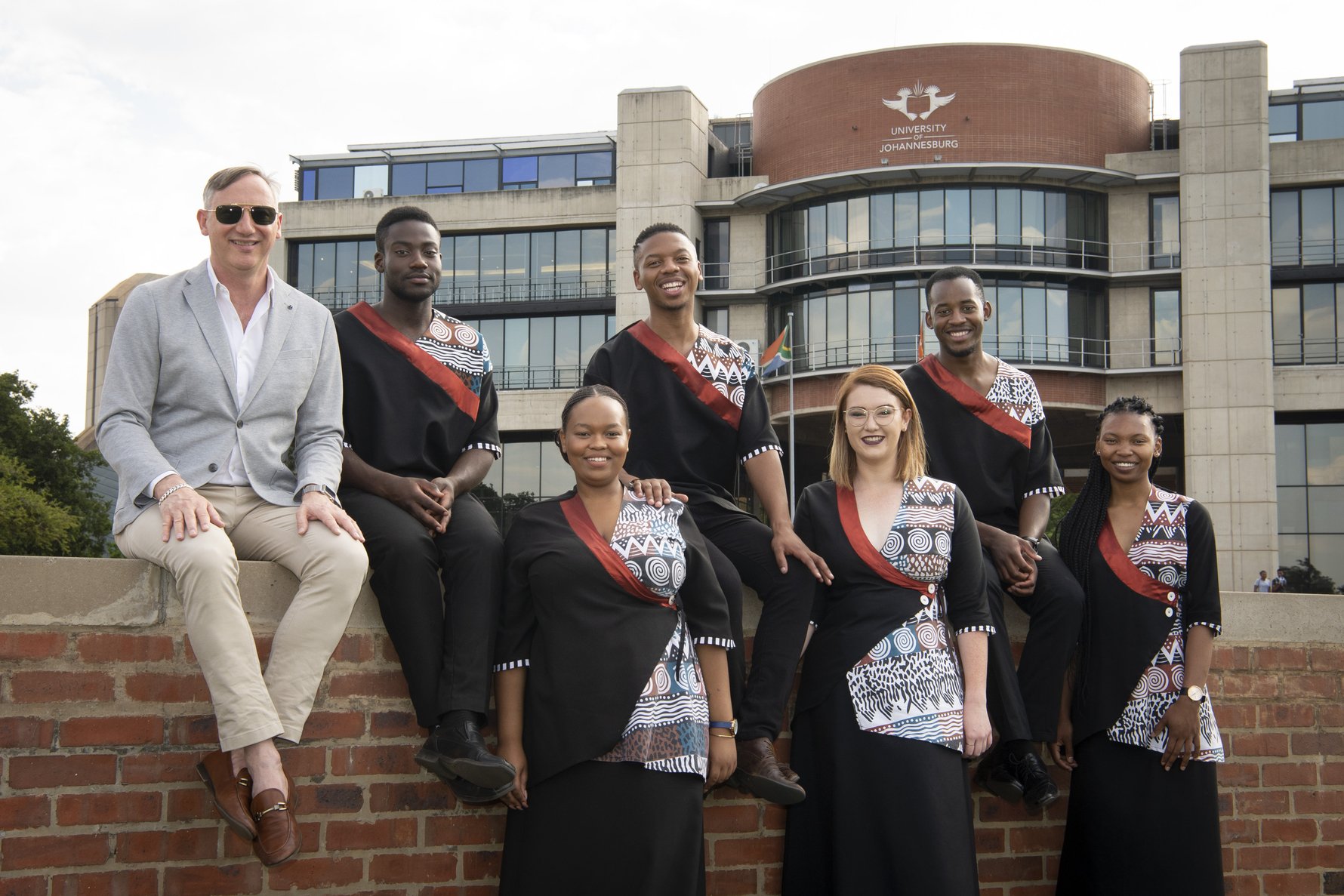
Home is...
Joburg. Always has been, always will be.
What brought you to Joburg or what makes you stay here?
Growing up in Springs and being interested in the arts, Johannesburg always loomed large in my imagination – it was my El Dorado, my Hollywood. As a schoolboy my friend and I would sometimes – unbeknownst to our parents – take the train to Johannesburg and just hang out in the city, marvelling at the buildings, the shops, the hustle, the sophistication. In standard nine I was accepted into the Johannesburg Art, Ballet, Drama and Music School (now the National School of the Arts), moved into the hostel in Empire Road, and never looked back! While I was at Wits University as an undergraduate I lived in flats in some of the amazing Art Deco blocks in the city – first in Stanhope Mansions in Plein Street and then Lusam Mansions in Eloff Street. It was the eighties, successive states of emergency were happening, tensions were high, the city was increasingly racially integrated, the university was a revelation, the clubs were pumping, and I couldn't have been happier.
What makes me stay here? I'm irresistibly drawn back. As I've said, I've left a couple of times – I lived in Cape Town in my twenties and came back; I lived in Cape Town again in the mid-2000s and came back; I lived in New Zealand for four years and I've come back. Sometimes my attraction to Johannesburg feels a bit like a relationship with a difficult partner – you know you should probably get out, but when the going's good they are so glamorous, so sexy, so generous that you keep returning...
What is a surprising thing people might learn about Joburg by having a conversation with you?
That it's the world's best-kept secret.

Your favourite Joburg suburb, and why you choose it?
I'm loving living in Parkhurst. It has a deeply satisfying blend of bougie and boho, and it's easy to get anywhere.
What three things should a visitor not leave Joburg without seeing or experiencing?
The views from any of Joburg's many ridges at sunset, whether looking out to the ever-expanding suburbs or at the city itself. The drama of a summer thunderstorm. Enjoying the performative glamour of the passing crowd in Rosebank on the weekend.
One song on your Joburg soundtrack that either is about Joburg or makes you think about this city?
Grace Jones' Libertango always takes me back to the nightclubbing days of my youth in Hillbrow and downtown Joburg. For me, it will always be inseparable from the glamour and sexiness of this crazy city.
The most memorable meal you have eaten in Joburg?
A dinner party after a concert a few years ago where my partner Neil (one of whose claims to fame is that he was a contestant on the second season of SA Master Chef) cooked an elaborate and unspeakably delicious Gordon Ramsay lobster langoustine ravioli that took two days and two nights to prepare. The assembled company all ended up dancing around a tree in the garden and howling at the full moon. Unforgettable.
If you could buy one Joburg building which would it be?
Only one?!? Probably Ansteys, the quintessential Joburg Art Deco skyscraper.
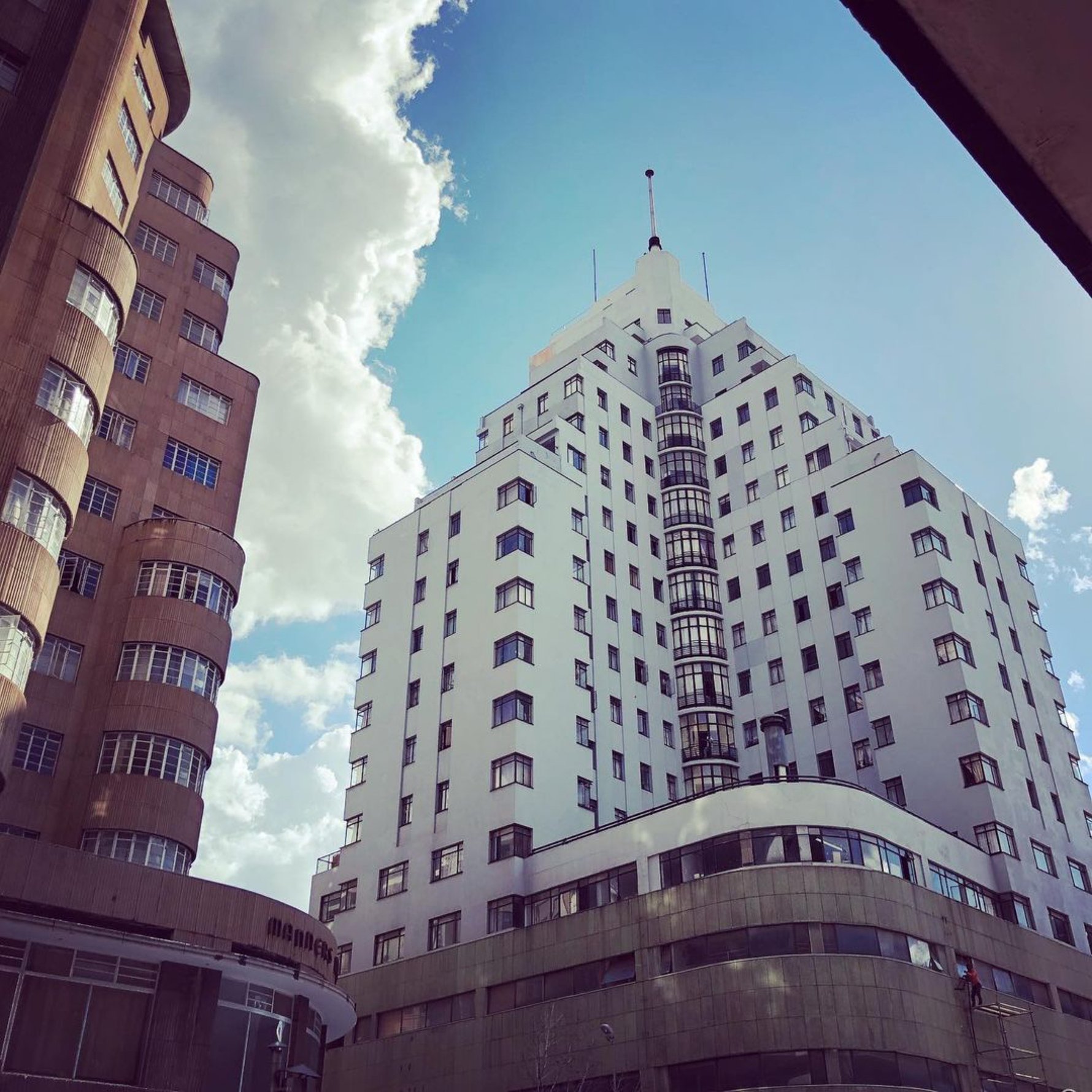
If you were Joburg's mayor for one day (average tenure), what would you change?
Fix the potholes and clamp down severely on reckless driving. Keeping traffic moving safely keeps the economy moving.
Favourite Joburg label, and why?
It's not a label per se, but I would pick 44 Stanley. Not only is it a great example of urban mixed-use planning, it has enabled a number of iconic Joburg brands to flourish.
What makes someone a Joburger?
The capacity to embrace contradiction and constantly reinvent oneself.
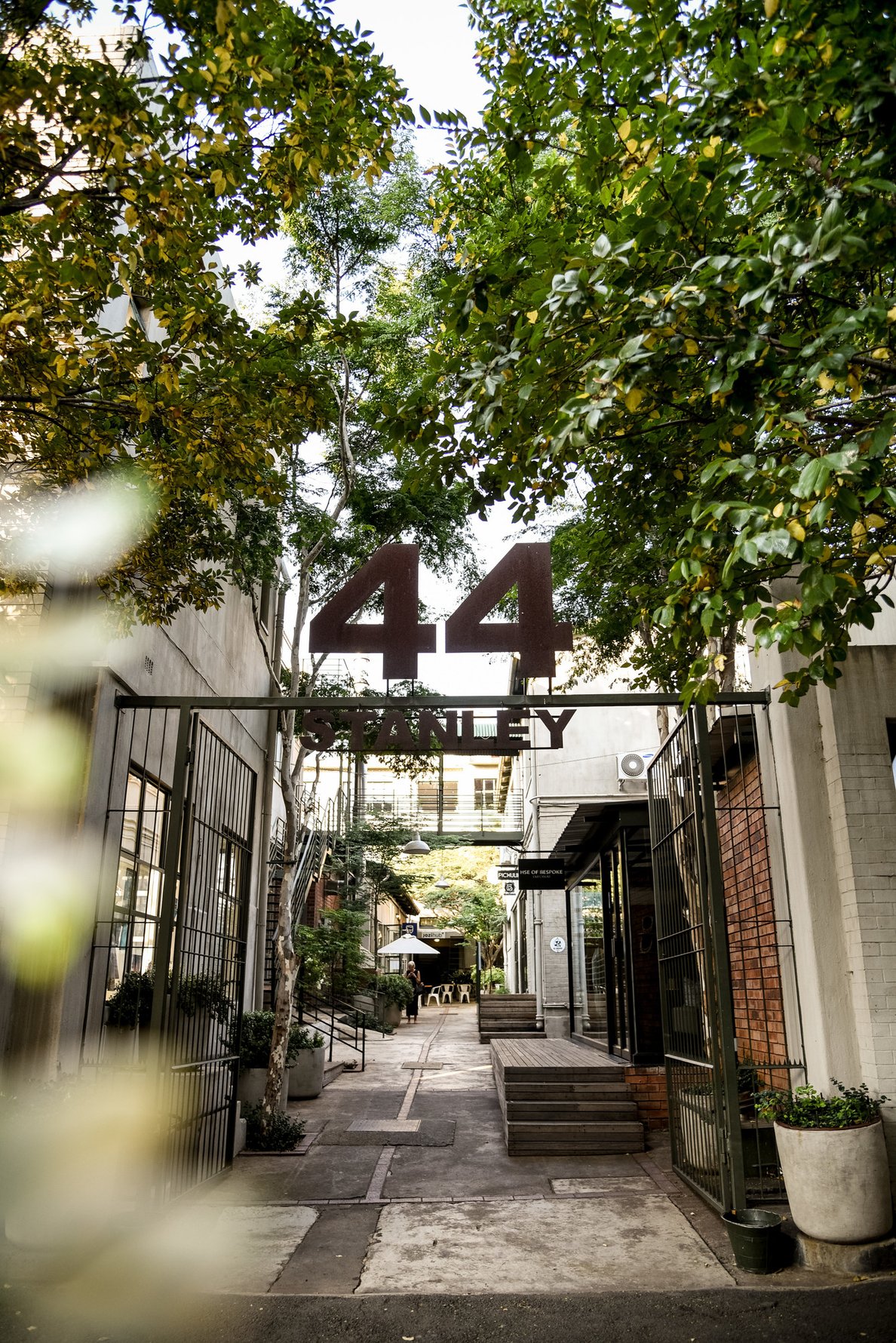
What do you love most about Joburg?
Everything! The people. The weather. The creativity. The danger. The can-do attitude.The thunderstorms. The unemployed people who act as impromptu points people during load shedding. The fact that I can afford a house. I could go on... What's not to love?
What do you least like about Joburg?
The potholes. The consistent and unforgivable dereliction of public infrastructure. The unnecessarily aggressive driving. The shameful neglect of the Johannesburg Art Gallery, which by any reasonable standard is a national treasure and deserves to be treated as such.
"Home is... Joburg. Always has been, always will be."
Your number one tip for a first-time visitor to Joburg?
Keep an open heart and mind and forget all the negative publicity you've heard... But watch your back!
Who is one Joburg personality you would honour with the Freedom of the City if you could, and why?
Kim Berman, co-founder of Artist Proof Studio. She has done so much to empower young artists in this city, and does so with such humility and grace.

The perfect weekend in Joburg includes...
Breakfast at Fab & Co. in Parkhurst. Enjoying the view from the gym at the Rosebank Virgin Active during a weekend workout. A dinner at home with fabulous Joburg friends old and new.
Three words that describe this city.
Glamorous. Sexy. Infuriating.
Check out some of our previous #MyJoburg interviews for more insights into the city:
#MyJoburg by Bret Dugmore, vinyl enthusiast and DJ
#MyJoburg by Bradley Kirshenbaum, founder of Love Jozi
#MyJoburg: Marcus Wyatt, pushing boundaries in South African jazz


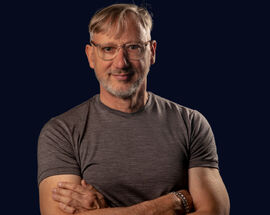
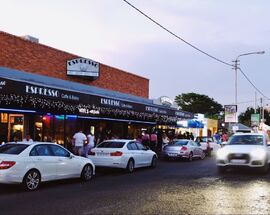
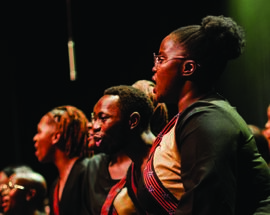


Comments